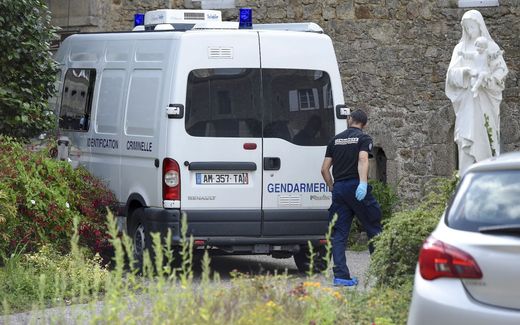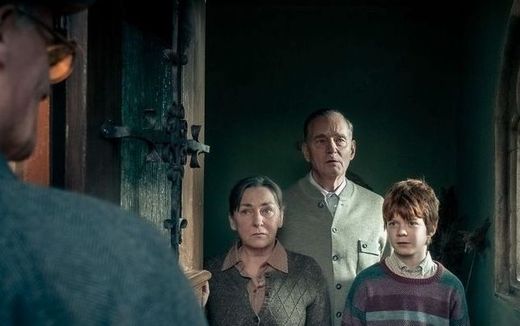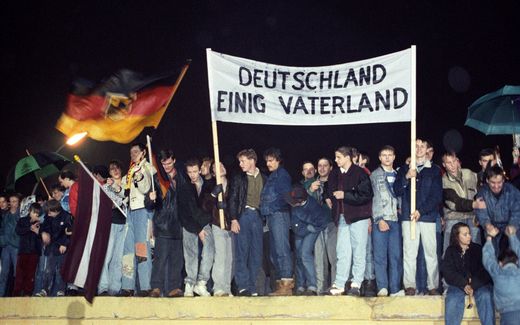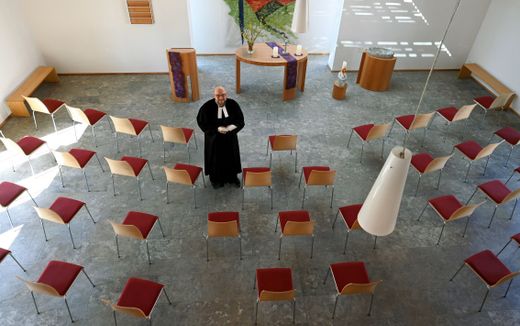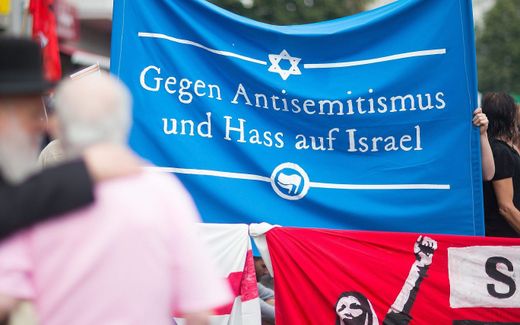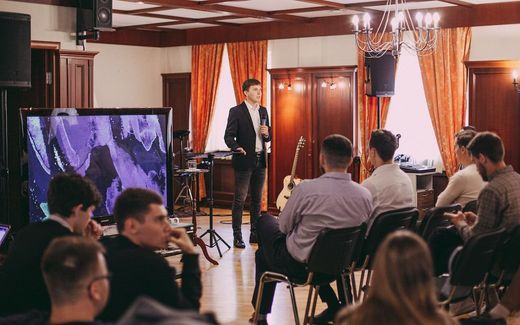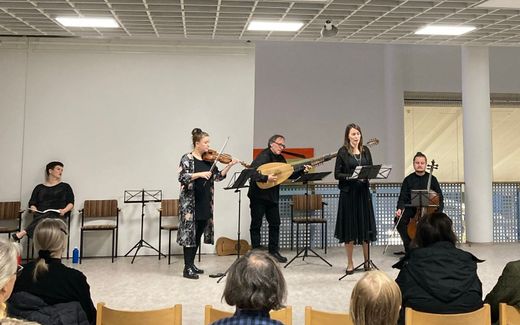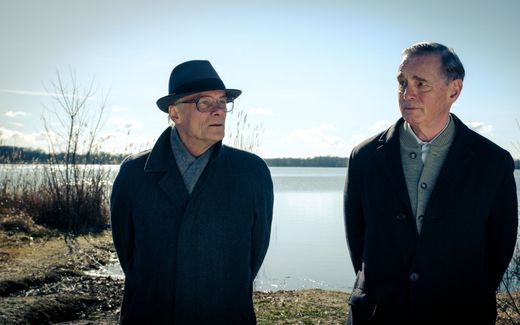This pastor spent two months in prison for Bible smuggling
04-12-2024
Central Europe
L. Vogelaar, RD
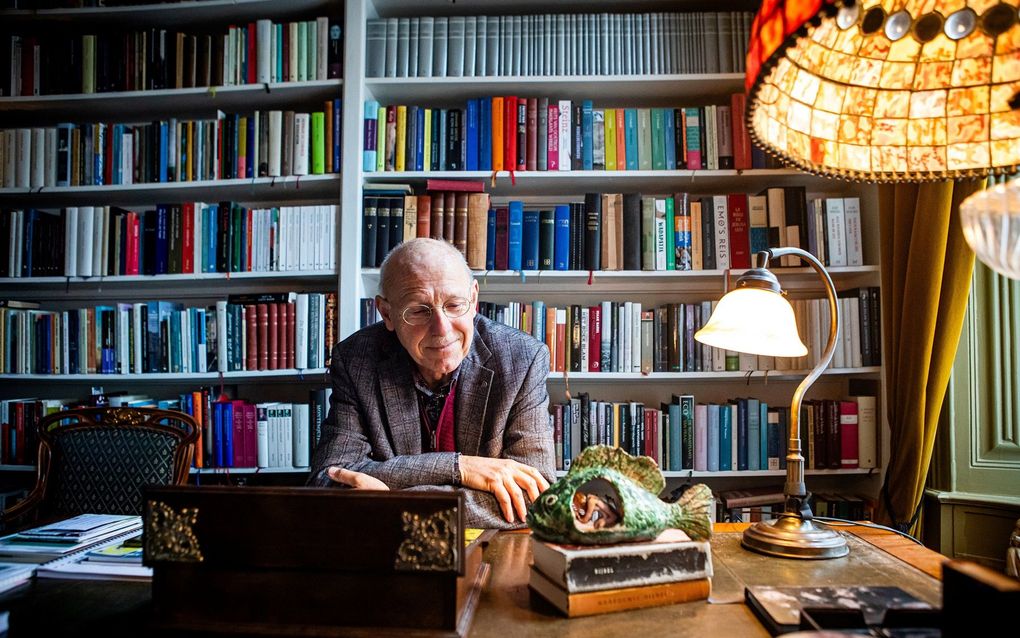
Pastor Lavooij. Photo Huisman Media
Central Europe
A bowl of liquid and a rock-hard hunk of bread. That was pastor Lavooij’s daily breakfast when he was imprisoned in Czechoslovakia for two months for smuggling Bibles and other reading material. “The prosecutor and his interpreter whispered how bad they had it under communist rule,” he said.
Stay up to date with Christian news in Europe? Sign up for CNE's newsletter.
Rev. Lavooij, now Reformed pastor emeritus in The Netherlands, is always reminded of it in November. Forty years ago, he was suddenly released. That was in early November. For five years, he was not allowed to enter Czechoslovakia. When he returned after that, the police would no doubt keep an eye on him. But when the five years were over, the Iron Curtain fell.

Lavooij was 28, still unmarried and near the end of his theology studies when, in September 1984, he got involved in the smuggling drives organised by theologian Hebe Kohlbrugge. “A fellow student had been approached for that but didn’t have a driving license. I did, so he asked me to drive. I liked that: it was for a good cause, and it was also an adventure, as it gave me the opportunity to visit Eastern Europe.”
Secrecy
In the deepest secrecy, the trip was prepared. “My parents were anti-communist but would certainly have been against it if they had known what I was going to do”, he says. “Our caravan was loaded up. My travelling companion knew where we had to go but had not told me anything for safety’s sake.”
What made the official at the Znoimo border crossing between Austria and Czechoslovakia suspicious, pastor Lavooij still does not know. “Maybe because we went there on holiday when summer was already over. He said: “Either you open the bottom, or I will.” Eventually he did it himself; the sweat was on his forehead. With an axe, he chopped up the boards in the floor of the caravan.”

Hidden below the floor were about a thousand books. They were not only Bibles but also, for example, material from the anti-communist movement Charta 77 and works by Franz Kafka, a writer who had grown up in Prague’s Jewish community. In addition, the two Dutch students had 19 long-playing records with them, including music by singer Wolf Biermann, who criticised East Germany’s communist regime.
Guard
After the discovery, Lavooij and his travelling companion were transported “at frantic speed” to Brno prison. “Each in a car; we were not allowed to have any more contact with each other. When we were registered at the prison, we were briefly in the same room again. The man who was supposed to guard us fell asleep. This allowed us to quickly agree on what to say during interrogations. In this, I saw God’s hand; the Lord neither slumbers nor sleeps. We were taken to a cell and did not see each other again until we were released two months later.”
The morning after the arrest, Lavooij was told that he faced three to five years in prison for trying to overthrow the socialist regime. “That was very difficult to process for a while. During preparations for the trip to Eastern Europe, we had been told that if things went wrong, we would be imprisoned for a maximum of two weeks. That ended up being eight.”
Pollution
Meanwhile, the home front knew something was wrong. “After crossing the Czechoslovakian border, we were supposed to make a coded phone call within 24 hours as a sign that we had delivered the cargo. When that did not happen, someone from the organisation went to Prague by train and called in the Dutch embassy.”
Meanwhile, Lavooij was interrogated several times a week in prison. As he had agreed with his travelling companion, he told –while an interpreter translated him from German– that the caravan had been loaded in the northwest of the Dutch province of Utrecht.
“Soon, I got the feeling that the prosecutor knew little and was also not making progress. Through the conversations, a certain rapport even grew. The officer and his interpreter became friendlier and eventually said openly how difficult it was in their country due to pollution and housing shortages. They did so in a whisper, with their hand next to their mouth, looking sideways. Once a day, we went outside for 10 minutes. Then, I noticed that the guards did not look at each other. In fact, they were trapped; they could not trust anyone. It was later revealed that one in seven people was a snitch.”
Lawyer
Lavooij lost lots of weight. “We were given a bowl of liquid for breakfast that was said to be coffee, but it didn’t taste good at all. The hard hunk of bread did not satiate either. Even what we got at lunchtime and in the evening was not lacking in taste, for instance macaroni with nothing on it.”
The small cell contained two bunk beds. “I was locked in there with a man who had received a 20-year sentence for fraud. He forced me to clean the cell. If it was no good, he kicked over the bucket, and I had to start over. The other cellmate was a lawyer who had committed construction fraud; he was a bit more approachable.
When I got a parcel from my parents with cheese and syrup waffles, I handed them out. This changed their attitude. When a pan of food was shoved through the hatch of the door, I did a silent prayer. The hustler asked what I was doing. It turned out he knew the Lord’s Prayer from his childhood. My cellmates were now equally silent, and so we each sat praying the Lord’s Prayer in our own language. My parents had also sent a Bible. I translated some bits into German, such as Peter being imprisoned and Paul and Silas in prison. My cellmates listened and became more and more sympathetic.”
Diplomacy
After almost eight weeks, Lavooij sat alone in the cell for the first time one day. “Then I sang out loud and prayed. Moments later, the hustler was brought back. Enthusiastically, he said, “Domu!” I didn’t understand him. In big letters, he wrote on a paper: “Domu.” That turned out to mean, “You go home!” He had heard that I would be released. The foreign ministry, the peace movement and our professors had been working on our behalf. My father wanted to bring in the media when I was imprisoned, but the foreign ministry blocked it: silent diplomacy worked better.”
A few days later, Lavooij and his travelling companion got their clothes back. The brown-striped prison clothes came off. “There I stood in my shorts, at five degrees above zero, as it was now November. In a Lada, we were taken to Prague. There, we were supposed to be put on a plane to the Netherlands, but, due to dense fog, it was postponed. For three days, we were in a cell eight metres underground. High above us was a small air hole. It got so stuffy in there that we had to stop our conversations.
The police took us up to the stairs of the KLM plane. Only when the plane took off did we feel free. In Holland, some blamed us for not telling them about our trip. Others had their verdict ready: our plan had been discovered, so we must have executed it clumsily.”
Praise
Pastor Lavooij sometimes tells his story at a school, “because many young people know nothing about the Cold War”. In September, he and his wife were in Vilnius, the capital of Lithuania. “The Dutch ambassador advised us to go to the museum of the KGB secret service to understand Lithuanians’ distrust of the Russians. In the museum, I saw cells and an air yard that looked exactly like the prison in Brno. After my wife put a video of it in the family app, I got lots of questions from my grandchildren. They sometimes have no idea what happened in the past.”
According to the preacher, Psalm 142 became meaningful to him through his experience in Czechoslovakia. “Carry my soul out of prison to praise Thy Name: I was allowed to serve five congregations after my imprisonment.”
Rev. Lavooij returned to Eastern Europe many times. He was involved in relief efforts in Romania and the Russian enclave of Kaliningrad. “In 1993, I saw an enamelled figurine of Jonah in the fish at a potter’s shop in Prague with whom we were sharing a meal. She told us she had been forced to shelter relatives under communist rule. It was an untenable situation in her small flat. She got out of bed at night and begged in the dark for relief. That prayer was answered soon after. In gratitude, she had made this figurine.
Then I told her about my captivity. Spontaneously, she picked up the figurine and gave it to me, even though she had first said it was not for sale. Her husband said, “We want to thank you, because all those transports have been snaps in the Iron Curtain, which finally made it fall.”
This article was translated by CNE.news and published by the Dutch daily Reformatorisch Dagblad on November 11, 2024
Related Articles

